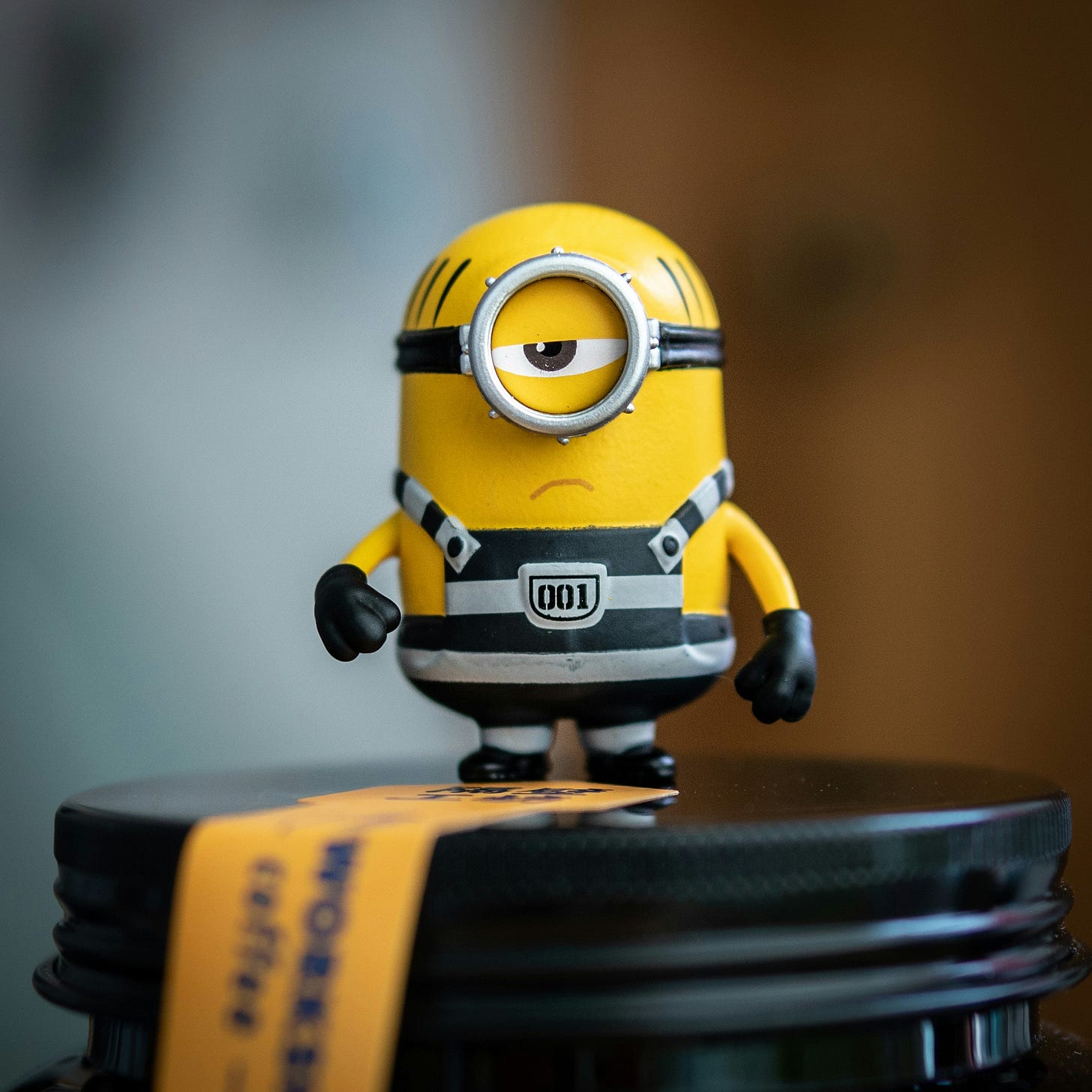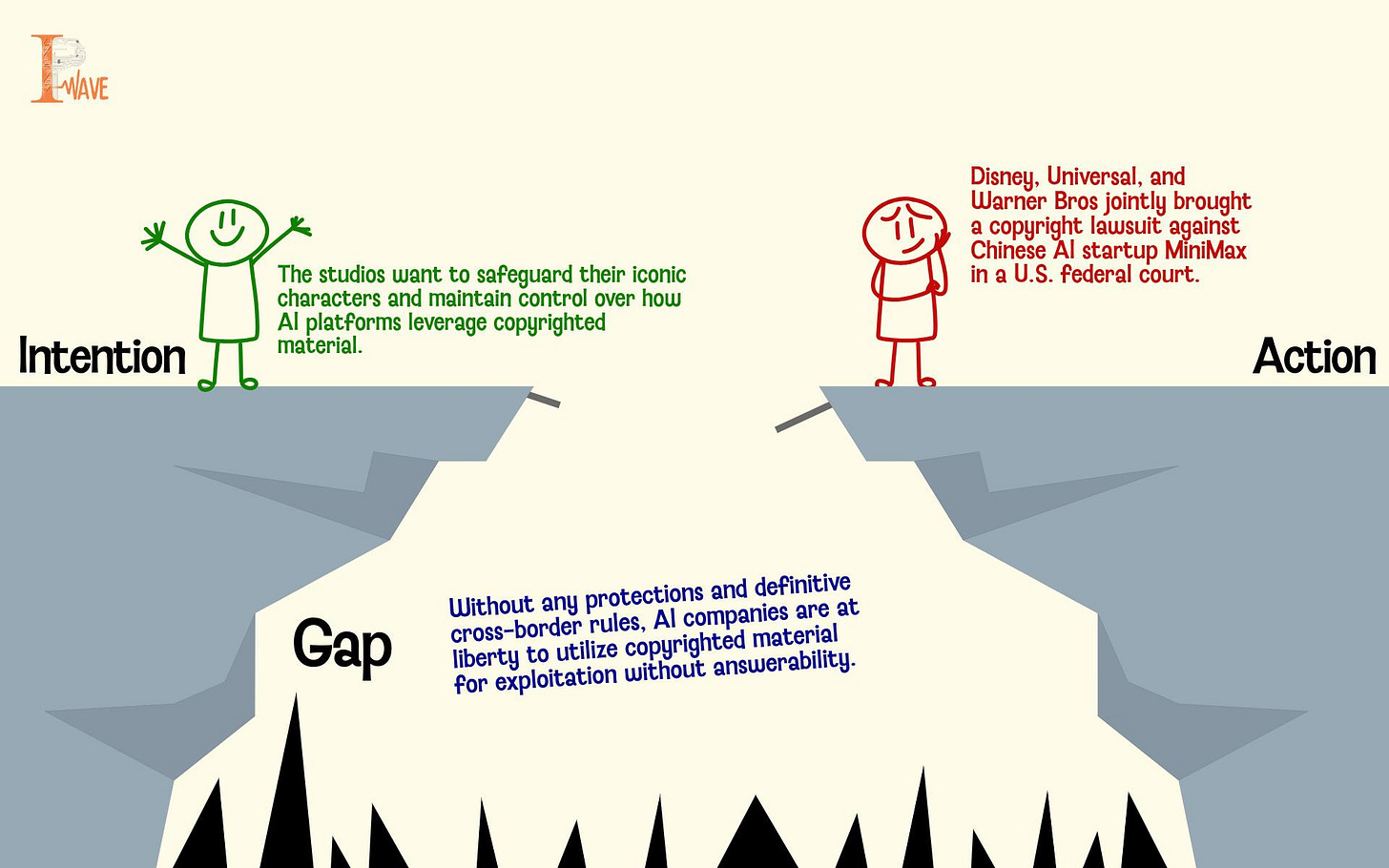When Darth Vader Meets AI: Why Hollywood Just Declared War on a Chinese Startup
Think about this: After opening an app and typing in “Darth Vader having a coffee on a neon Shanghai street,” a high-resolution picture of Disney’s dark lord of the Sith sipping a cappuccino while lost in concentration emerges in a matter of seconds.
It’s not fan art. The merchandise is not licensed. MiniMax, a Chinese firm, is the creator of Hailuo AI. And for that very reason, three of Hollywood’s largest companies—Disney, Universal Pictures, and Warner Bros. Discovery—have just burst into one of the decade’s most intense copyright battles.
The Lawsuit That Shook Hollywood
On September 16, 2025, the studios filed a lawsuit in a federal court in Los Angeles that was more than 100 pages long. They claim MiniMax’s generative AI was built and sold on their favourite figures, including Wonder Woman, the Joker, Groot, and Minions.
The complaint doesn’t mince words: MiniMax’s actions are “wilful and brazen,” capitalizing on decades of Hollywood legend. According to the studios, MiniMax has failed to implement protections, disregarded cease-and-desist orders, and even used copyrighted characters to promote their AI.
If the court rules in favour of MiniMax, the company may be held accountable for up to $150,000 for each infringing product, not including injunctions and legal fees.
Why This Case Is Different
Lawsuits against American AI companies have been seen before; the most prominent of them is the continuing dispute over Midjourney, in which Disney, Universal, and Warner Bros. contend that the AI picture tool allows users to summon Superman, Batman, or Bugs Bunny at the touch of a button.
MiniMax, however, has its headquarters in China. As a result, this issue involves jurisdiction, enforcement, and setting a worldwide precedent in addition to intellectual property.
“We don’t care whether you’re in San Francisco or Shanghai — if you abuse our characters, we will pursue you,” is what Hollywood is effectively saying.
Additionally, timing is crucial. MiniMax, valued at over $4 billion, intends to go public. A Hollywood lawsuit may deter investors or force the company to make an expensive compensation payment.

.The Defense We Might Hear
MiniMax still hasn’t made an official statement. If prior history serves as a guide, however, expect to hear arguments like- “Fair use.” People will claim that AI reworks rather than reproduces- “The user did it.” For example, if someone queries “Batman in Paris,” isn’t the user—not the business—at fault? “We employed legal data.” MiniMax can claim that its training data was licensed or in the public domain.
Of course, Hollywood anticipates this. Their attorneys argue that MiniMax developed the technology, profited from it, and had the ability to filter outputs, but failed to do so.
The Bigger Picture
This is not a one-time conflict. Here is a quick timeline:
• June 2025: Disney and Universal suit Midjourney for being a “quintessential copyright free-rider.”
• September 2025 (earlier): Warner Bros. joins the Midjourney case, comparing the AI outcomes with those of Superman and Bugs Bunny.
• September 16, 2025: The same group takes MiniMax to court, expanding the conflict internationally.
Legal experts are paying careful attention. Some think it would establish the standard for “fair use” of AI training. Some predict that it would force studios and AI firms into license agreements, creating an awkward détente between Hollywood and Silicon Valley (and, increasingly, China’s tech hubs).
Why It Matters
If the studios win, AI companies could have to agree to costly license agreements,more thorough auditing may be applied to training data and international startups may have to revise their business plans.
If MiniMax wins, it may inspire AI companies around the world to use protected content more aggressively.
In the era of artificial intelligence, Hollywood might not have complete control over how its characters are portrayed. Supervisors may step in and enact laws when the courts are hesitant.
The Story Behind the Headlines
This goes beyond a simple lawsuit. This project explores what creation looks like in the AI era.
Can a machine that has been trained with the best successes from Hollywood feign to create “new” content? Who owns the Parisian alleyway café and Darth Vader mashup? And is there any way that a Chinese business that serves users worldwide may be covered by US law?
One thing becomes clear as the papers mount: this dispute is bigger than Disney v. MiniMax. The future of commerce, art, and the liminal space between originality and plagiarism are all at stake.
References
Reuters — Levine, D. (2025, September 16). Disney, Universal, Warner Bros Discovery sue China’s MiniMax for copyright infringement. Reuters. Link
Financial Times — Browne, R. (2025, September 16). Disney, Universal and Warner Bros sue Chinese AI start-up MiniMax. Financial Times. Link
Los Angeles Times — James, M. (2025, September 16). Disney, Universal and Warner Bros Discovery sue Chinese AI firm. Los Angeles Times. Link
Variety — Spangler, T. (2025, September 16). Disney, Warner Bros Discovery, NBCUniversal Sue Chinese AI Company MiniMax for Copyright Infringement. Variety. Link
AP News (contextual, Midjourney litigation). (2025, September 4). Warner Bros sues Midjourney for AI-generated images of Superman, Bugs Bunny and other characters. Link
The Guardian — Hern, A. (2025, June 11). Disney and Universal sue Midjourney over AI images of superheroes and film characters. Link

